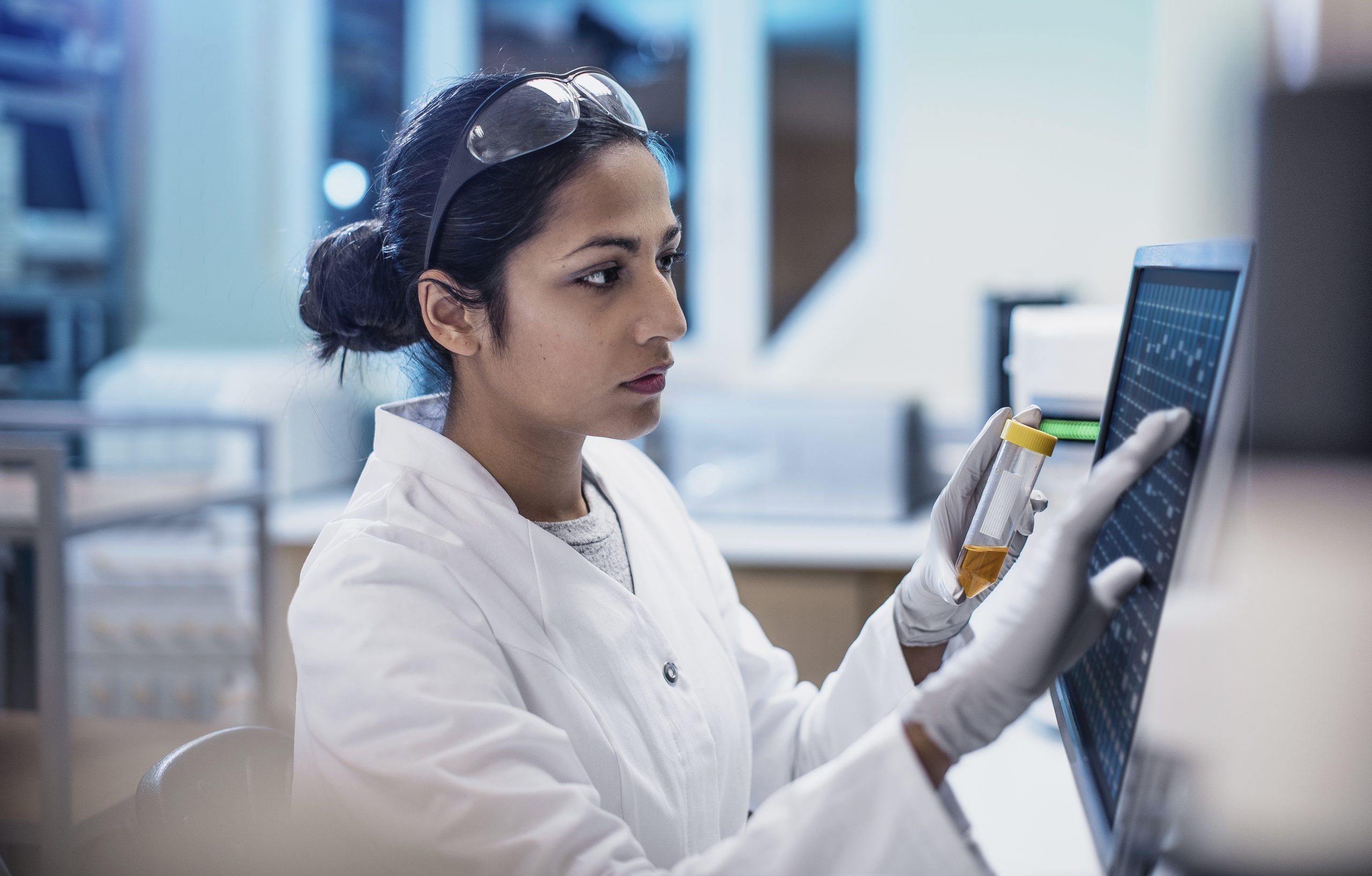 Back to Case Studies
Back to Case Studies
Location
Armonk, NY
IBM Research partnered with IBM Science for Social Good to explore the development and application of Generative AI models to help accelerate the discovery of potential new drug candidates by automating the molecule discovery process. In 2020, IBM Research applied this framework, consisting of a controllable deep generative model, to SARS-CoV-2 protein targets and identified novel molecules as potential COVID-19 therapeutic candidates. These molecules have been shared under an open license through an interactive tool known as the Molecular Explorer. Available online, biomedical and healthcare researchers and scientists can study the molecules and understand their characteristics and relationship to COVID-19 to identify candidates that might have the properties to be further pursued in drug discovery. The platform enables and promotes open innovation, transparent data and insight sharing, and trusted evaluation of new drug candidates at an unprecedented scale and pace.
 This first-of-its-kind AI-empowered platform has unleashed unprecedented scientific collaborations towards fast solving some of the world’s most complex challenges.
This first-of-its-kind AI-empowered platform has unleashed unprecedented scientific collaborations towards fast solving some of the world’s most complex challenges.
Rapid drug discovery processes are critical to dealing with new viral outbreaks and epidemics. The COVID-19 pandemic required a global, collaborative, and rapid response. The traditional drug discovery pipeline is costly, time-intensive, and the research is often siloed. On average, creating a new drug costs as much as $2.6 billion and can take 12 to 14 years for the drug to reach the market. One-third of the overall cost and time is attributed to the drug discovery phase requiring the synthesization of thousands of molecules to develop a single pre-clinical lead candidate. Existing generative AI models have the potential to accelerate the design of novel drug candidates; however, several challenges exist.
 The COVID-19 Molecular Explorer helps researchers generate potential new drug candidates for COVID-19.
The COVID-19 Molecular Explorer helps researchers generate potential new drug candidates for COVID-19.
IBM’s generative AI model has overcome the traditional challenges of applying AI models to accelerate the design of novel drug candidates. This has been accomplished by combining deep learning, generative modeling, novel sampling, and optimization methods. Overcoming the traditional challenges enables the generation of novel artifacts with desired properties. The same AI methods recently discovered novel antimicrobials that will be used in the research and development of antibiotics.1
Applying this AI technology to three COVID-19 target proteins, IBM identified 3,500 small molecules as potential COVID-19 therapeutics and released these molecules on the COVID-19 Molecular Explorer platform under an open license. This interactive tool allows the user to select different biological targets and filter generated molecules by characteristic and relationship so that researchers can study the molecules and identify candidates that may have desirable properties to be further pursued in drug development.
The COVID-19 Molecular Explorer has approximately 9,000 usages worldwide. This first-of-its-kind AI-empowered platform has attracted diverse stakeholders from the public and private sectors and unleashed unprecedented scientific collaborations and partnerships towards quickly solving some of the world’s most complex challenges. Most recently, Oxford University and Diamond Light Source have been working together with IBM to screen AI-generated novel drug molecules exposed in the Molecular Explorer tool to find an effective antiviral against COVID-19. Diamond synthesized and tested molecules where they confirmed SARS-CoV-2 activity of these AI-designed novel molecules at an impressively high success rate, showcasing the Molecule Explorer platform’s potential and the underlying AI techniques for accelerating the discovery of novel drugs and other molecules and materials. This work demonstrates the future of accelerated discovery, where AI researchers and pharmaceutical scientists can work together in an open and collaborative global community to rapidly create next-generation therapeutics aided by novel AI-powered tools.
¹ Payel Das et al., “Accelerated Antimicrobial Discovery via Deep Generative Models and Molecular Dynamics Simulations,” Nature Biomedical Engineering, March 11, 2021, 1–11, https://doi.org/10.1038/s41551-021-00689-x. ↩